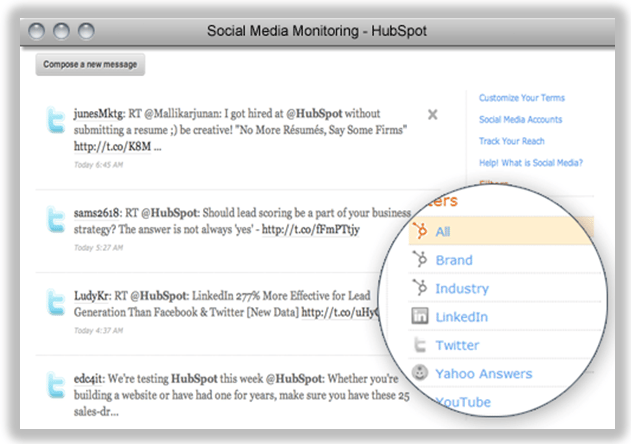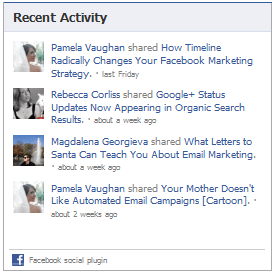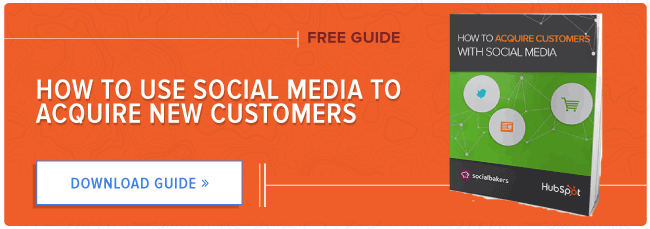An individual's purchasing decision can be influenced by a large number of factors. Are you considering how influential social proof can be in that mix? According to Goog le , 70% of Americans now say they look at product reviews before making a purchase. Furthermore, a CompUSA and iPerceptions study revealed that 63% of consumers indicate they are more likely to purchase from a site if it has product ratings and reviews.

While product reviews are only one type of social proof, those are some pretty persuasive statistics to consider. It demonstrates that people can heavily influenced by others' experiences, making a case for why social proof is such a powerful concept for businesses to leverage.
Are you giving the social proof of your business the visibility it deserves? In this post, we'll lay out exactly what social proof is, discuss the various types, and explain the ways you can leverage it in your business' marketing efforts.
What Is Social Proof?
' Social proof ,' also referred to as 'informational social influence,' is the concept that people will conform to the actions of others under the assumption that those actions are reflective of the correct behavior. In other words, it's the mentality that, if other people are doing it, and I trust those people, that's validation that I should also be doing it. This third-party validation can be a very powerful motivator for your site visitors' and prospects' actions.

- Night clubs and bars limiting entry, making patrons wait in line outside to increase the perception that the venue is popular to attract more passersby.
- TV shows playing canned laughter or recorded applause to elevate the perception of funny or applaudable situations.
- McDonald's fast-food restaurants displaying signs boasting "Billions and Billions Served."
So while the concept of social proof may be nothing new, the rise of the internet and social media adoption have certainly made social proof a lot easier to leverage and exploit, especially in a marketing context. Building and providing better visibility for your business' social proof can be a powerful addition to your marketing strategy .
5 Categories of Social Proof
As I mentioned, reviews aren't the only marketing tool that can be classified as social proof. In an article about social proof , TechCrunch clearly identified 5 different categories of social proof:
- Expert Social Proof: Approval from a credible expert, such as an industry blogger or other authority
- Celebrity Social Proof: Approval or endorsements from celebrities, especially those that are unpaid
- User Social Proof: Approval from current users of the product/service, such as customer testimonials, case studies, and those all-powerful reviews
- 'Wisdom of the Crowds' Social Proof: Approval from large groups of other people (Our traditional examples above would fit nicely into this category of social proof.)
- 'Wisdom of Your Friends' Social Proof: Approval from your friends or people you know
Now let's discuss the various types of social proof your business has at its disposal, and how to surface them for marketing purposes. You might actually be surprised to find out that you have more social proof than you thought!
10 Types of Social Proof for Marketing
1) Social Media Mentions
 Regularly monitoring your social media presence can be a great way to source social proof, especially User Social Proof, on a regular and ongoing basis. Incorporate mechanisms to surface some of these instances of social proof into your day-to-day monitoring activities. If you're using a third-party tool like HootSuite or HubSpot's social media monitoring , you can track mentions of your products or services and surface any positive mentions you find.
Regularly monitoring your social media presence can be a great way to source social proof, especially User Social Proof, on a regular and ongoing basis. Incorporate mechanisms to surface some of these instances of social proof into your day-to-day monitoring activities. If you're using a third-party tool like HootSuite or HubSpot's social media monitoring , you can track mentions of your products or services and surface any positive mentions you find.
HubSpot's social media marketing team, for example, stars any positive HubSpot brand and product mentions on Twitter as favorites, which can be viewed in the HubSpot Twitter account's 'Favorites.'
2) Embedded Tweets
Speaking of Twitter, have you played around with Twitter's new embeddable tweets feature? If someone tweets something positive about you, now you can embed that tweet on your product or case study pages (or elsewhere) to add credibility and emphasize User Social Proof.
Here's a step-by-step guide to using Twitter's embeddable tweets feature to help you get started, and below is what an embedded tweet looks like:
@ HubSpot is the the best thing to have landed in New England since Tom Brady
— Ted Engel (@iamtedE) April 6, 2012
3) Social Plugins

Consider adding Facebook social plugins such as the Activity Feed, the Recommendations Plugin, the Like Box, and the Facepile Plugin to your website and blog content. These plugins put social proof at the forefront, showing site visitors thumbnail images and/or names of people they know who have already liked, recommended, subscribed to, shared, commented on, etc. the content the plugin is installed on.
4) Social Media Sharing/Follow Buttons
Social sharing is a form of social proof, so make it simple and easy for your fans, followers, subscribers, etc. to share your content.
Include social media sharing and follow links/buttons on all your content -- on every blog post, every landing page, every page of your ebooks -- everywhere! When you make it easy for people to share the content they love, there's a better chance they'll actually share it, expanding the reach of your content and spreading social proof for your business. For social game service provider Zynga, for example , friends inviting friends to play through Facebook and other social networks helped the company grow from 3 million to 41 million average daily users in just one year .
5) Case Studies & Testimonials
Another great form of user social proof, publishing case studies and testimonials allows you to highlight the positive experiences of your happiest/most successful/passionate customers.
Consider the various ways you can identify and feature your best customers. Connect with your customer service team and ask them to alert you whenever they come across a particularly happy customer. Then approach them for a testimonial or case study. At HubSpot, for example, we feature customer case studies on our case studies blog , feature user testimonials here , as well as showcase customer love through our " I HubSpot Because " campaign:
6) User-Generated Content
User-generated content such as blog posts, photos, and even video can be another fantastic form of user social proof. Usually crafted by your brand's biggest fans, this content is often very genuine, enthusiastic, and positive. Video user testimonials on YouTube, for example , generated 3x the conversion rate vs. organic traffic for Beachbody, the makers of P90x fitness.
Consider holding a user-generated content contest, and feature the best submissions on your website, blog, and via social media.
7) User Reviews & Ratings
User reviews and rating systems can be found on review sites such as Yelp, within social networks (LinkedIn Reviews is a great example), or particularly in the case of ecommerce businesses, implemented directly on your website. And according to Harvard Business Review research , a 1-star increase in Yelp rating leads to 5-9% growth in sales.
To encourage more positive reviews on third-party review sites, check out this helpful guide to accumulating awesome online reviews .
8) Social Advertising
 One of the most recent internet-based applications of social proof is in social advertising, or ads that leverage the social context of the user viewing them. In other words, in social advertising, the marketer targets users based on what they know about that individual's social network. Promoted Tweets and various Facebook Engagement and Sponsored Stories ads are great examples of social advertising, which enable marketers to better target their advertising efforts and leverage 'Wisdom of Your Friends' or 'Wisdom of the Crowd' Social Proof in advertising efforts, as seen in the example at right.
One of the most recent internet-based applications of social proof is in social advertising, or ads that leverage the social context of the user viewing them. In other words, in social advertising, the marketer targets users based on what they know about that individual's social network. Promoted Tweets and various Facebook Engagement and Sponsored Stories ads are great examples of social advertising, which enable marketers to better target their advertising efforts and leverage 'Wisdom of Your Friends' or 'Wisdom of the Crowd' Social Proof in advertising efforts, as seen in the example at right.
To experiment with Facebook's social advertising functionality, check out our free ebook on creating effective Facebook ads (no form submission required!).
9) User Statistics
This form of social proof, which falls under the category of 'wisdom of the crowd' social proof, can be leveraged by surfacing such user statistics as blog subscribers, customer install base, user successes, etc. What are some of your business' most impressive stats? Do you have an impressive install base (remember our McDonald's example)? Is your blog subscribership something to brag about? Have you been in business for decades? Have your customers collectively accomplished something impressive?
For example, HubSpot customers generated a grand total of 12.4 million leads in 2011, which is testament to the effectiveness of the HubSpot software -- and a stat we were sure to include in the 2011 HubSpot Year in Review .
10) Media & Blog Mentions
That's right -- media mentions are definitely a form of Expert Social Proof, so be sure you're giving that PR coverage the attention it deserves! Keep your press room up-to-date and make it more social so people can easily find and share your positive press with their networks.
To learn how to ramp up your media and blogger relations efforts to get more coverage, check out this blog post .
Leverage Social Proof Everywhere
Now that you know about the various social proof tools at your disposal, leverage them! Promote all those awesome testimonials, user statistics, tweets, etc. using your social media channels, sprinkle them throughout your website and blog, and create dedicated pages on your website to house certain types of social proof such as case studies, reviews, and testimonials. Use them in product marketing collateral, on landing pages, and in email marketing communications. After all, social proof will only be effective if you give it visibility.
Are you giving your business' social proof the visibility it deserves?
Image Credit: deadserpents , wfyurasco



